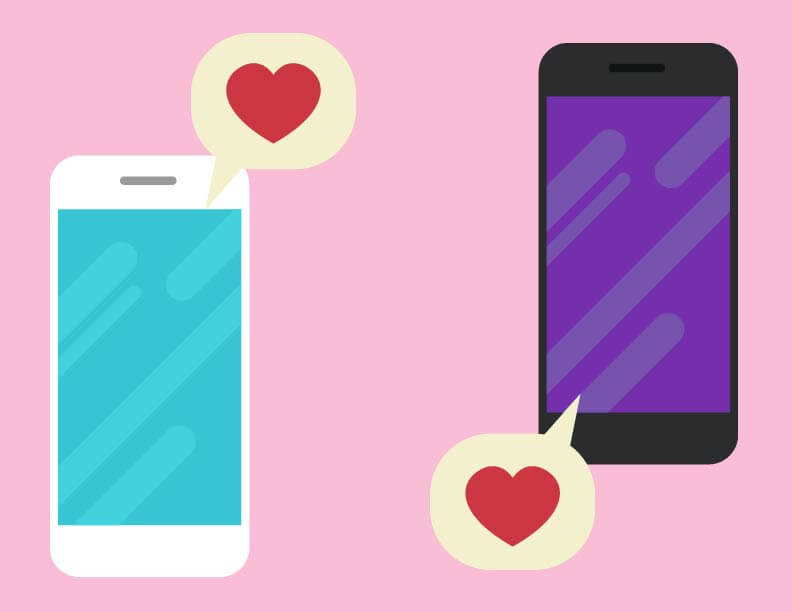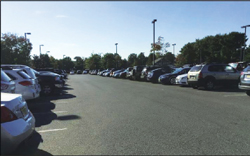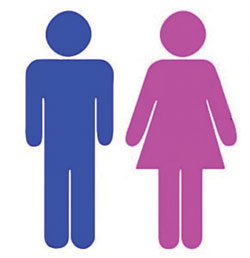For many modern daters, stuffing notes in a crush’s locker or sending roses signed by “Your Secret Admirer” has largely been replaced with swiping right on a smartphone screen.
Many college students have made a beeline to online dating, with popular apps like Tinder, Bumble, and Hinge taking the forefront. According to the Pew Research Center, 30 percent of Americans used a dating site or app as of 2020, compared to 11 percent in 2013. That number jumped to 48 percent for Americans aged 18-29 in 2020.
In the online dating sphere, Tinder has a reputation of harboring users looking for hookups or casual relationships. Hinge, on the other hand, is marketed with the slogan “Designed to be deleted,” drawing users who seek deep connections and long-term relationships. Bumble, dubbed the “feminist dating app,” only allows women to make the first move, reversing traditional gender roles prevalent in heterosexual relationships.
One senior English education student, who wished to remain anonymous, shared her experience using Hinge. “I don’t use it that often; only when I’m bored. I downloaded it during quarantine because I didn’t have anything else to do. I think sometimes I want attention and then I’m sick of it, so I stop talking to people. It’s a shot of dopamine and attention that you can get at any time,” she said.
According to a peer-reviewed study published in Sexuality & Culture: An Interdisciplinary Quarterly, many online daters initially view these apps as “fun” or as a “game,” but generally find them more convenient than traditional, in-person dating.
The anonymous student, who identifies as bisexual, also finds a discrepancy in how different genders communicate on Hinge. “I think women are just more intuitive than men. [Women] ask questions about me, while men do not. I’m not saying they’re more serious, just that they are more considerate,” she said.
The student also noted that several male matches on Tinder requested salacious photos rather than a genuine conversation or relationship, thus causing her to delete the app.
Those who experience sexual harassment through dating apps are more prone to showing depression and anxiety symptoms, increased loneliness, and lower self-esteem, according to a 2022 study in the Journal of Sex Research.
“I hate Tinder,” concurred a senior health studies student, who also wished to remain anonymous. “It’s become the app to use for hookups and it’s not the place to go if you’re really trying to find a personal connection with somebody.”
This student also found that dating app usage has negatively affected her mental health. “If I don’t get a match back from a certain person it makes me feel discouraged,” she said. “It also sucks because it’s so easy to ghost people on dating apps, and having a conversation you thought was going retally well suddenly stop is definitely a dating deterrent.”
Such experiences can lead to “dating app burnout” for many students. Students may experience feelings of self-doubt or inferiority if they don’t receive as many matches as expected, get “ghosted” when a match abruptly ceases communication, or even get “catfished” when a match pretends to be someone they’re not.
“Dating apps can create a ‘relationshopping’ mentality where there are so many options that it encourages pickiness, ‘trading up,’ or less civil behaviors (e.g., ghosting),” said Gary Lewandowski Ph.D., Professor of Psychology with a special research focus in romantic relationships. “There is also the issue of people lying and misrepresenting themselves. Though that’s also possible for in-person dating, on the apps, that extra layer of perceived anonymity makes it a bit easier.”
Lewandowski continued, “Using any dating app can heighten the impact of rejection, simply because there is greater volume of interactions. Dating apps that focus more on physical attributes/appearance (e.g., Tinder) can amplify body image issues.”
The anonymous English education student also noted how dating apps can foster feelings of insecurity about body image. “You put these pictures up of yourself and you’re like, ‘Somebody likes me and my body.’ But then you realize, ‘These people don’t know me.’ Dating apps are based solely on appearance, so I feel like it can cause a lot of body issues,” she said.
“In my opinion, the better dating apps are any that allow users to highlight their personality, interests, and hobbies, rather than their appearance,” said Lewandowski. “Personality factors are more important for long-term relationship success.”
Kimberly Hill, Clinical Counselor for Monmouth’s Counseling and Prevention Services (CPS), gave advice for students who may experience body image insecurity as a result of dating apps. “To any student that is struggling with a body image insecurity, nobody is perfect. There are a few different strategies to combat this insecurity, but I would recommend to take a look at yourself and identify the things about yourself that you do like. Accepting our body image and our overall confidence level can be challenging and I would encourage students to see a counselor if they feel as if they cannot get through this alone,” she said.
Hill also provided advice on how to cope with rejection and ghosting. “I would encourage any student that feels a sense of rejection or ‘ghosting’ to allow themselves to process, either with a friend or independently, your feelings and thoughts,” she said.
“Let’s explore why these feelings and thoughts are coming up for you,” Hill continued. “I know it is probably easier said than done, but keep in mind that there may also be other factors contributing to why this person stopped responding to you. They can potentially have their own stuff going on! After some reflection, go participate in something enjoyable to help lighten the mood.”
Apps like Bumble have a built-in “safety and well-being” feature, which provides tips for combatting dating anxiety and exhaustion, feelings of rejection, and more. Bumble recommends taking a break from swiping, “browsing mindfully,” and finding a healthy balance between dating, family, work, hobbies, and self-care. Finally, the app urges users to “keep the faith,” providing a link to Bumble success stories.
A question persists: can dating apps foster genuine human connection and long-term romantic relationships? According to the Pew Research Center, about 12 percent of adults have married or began a committed relationship with someone they first met through a dating site or app. In fact, users are more likely to describe their overall online dating experience as positive (57 percent), rather than negative (42 percent).
Lewandowski noted some advantages to dating apps compared to in-person dating. “A major benefit of meeting someone online is that gives users the opportunity to learn more about a potential partner upfront and help identify meaningful similarities and desirable traits beyond simple physical features. Dating through apps is also a lot easier for individuals who are less outgoing,” he said.
Some Monmouth students have also reported dating app success. Stefanie Donayre, a senior communication student, met her boyfriend of two years on Bumble.
“The beauty of using a dating app is being able to find someone who shares similar interests or values as you through the filters and profile prompts,” Donayre said. “Just like traditional dating, you still go through some dates to spend time together and get to know one another. I think certain dating apps can foster genuine romantic connection, and I’m just one of many people that can attest to this.”




